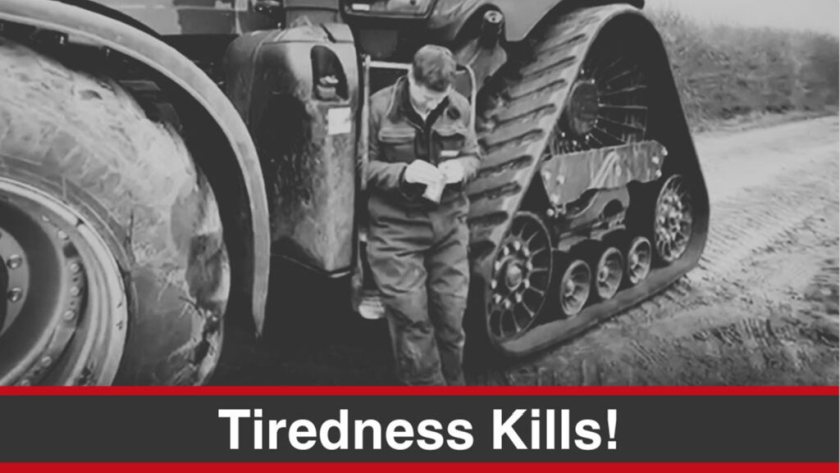
A new farm safety campaign has launched to raise awareness of tiredness and the dangers it represents to the agricultural industry.
The National Association of Agricultural Contractors (NAAC)'s campaign ‘Have a Break – Tiredness Kills’ was unveiled on social media today (15 July).
Launched in collaboration with Nestlé and the Farm Safety Partnership, it seeks to 'grab the attention' of farmers to encourage them to 'have a break'.
Farming has retained the worst safety record in any industry with the most deaths per 100,000, with the annual average injury rate over the last five years around 21 times as high as the all-industry rate.
It has been almost impossible to change these statistics in recent years, despite numerous industry and campaigns.
However, there is a trend that after very busy periods, such as harvest, on-farm fatalities spike, according to NAAC.
"This makes sense as research shows that driver fatigue may be a contributory factor in up to 20% of road accidents, and up to one-quarter of fatal and serious accidents," NAAC said.
"Fatigue results in slower reactions, reduced ability to process information, memory lapses, absent-mindedness, decreased awareness, lack of attention, underestimation of risk, reduced coordination etc.
"Fatigue can lead to errors and accidents, ill health and injury, and reduced productivity."
NAAC said it wanted to use this campaign to draw attention to the issues of tiredness, with an ultimate aim of making 2024 a safer year for agriculture.
Today, campaign partners, in collaboration with Nestlé, launched ‘Have a Break, Tiredness Kills’ to remind farmers and contractors of the risks associated with working when tired.
NAAC said that working extended hours was 'almost a badge of honour' in farming and contracting.
"However, the industry is under regular pressure, by the UK weather and a declining workforce, to work long hours to keep the nation fed.
"Livestock and crops need constant care and it can be difficult for operators to see an opportunity to 'have a break'."
